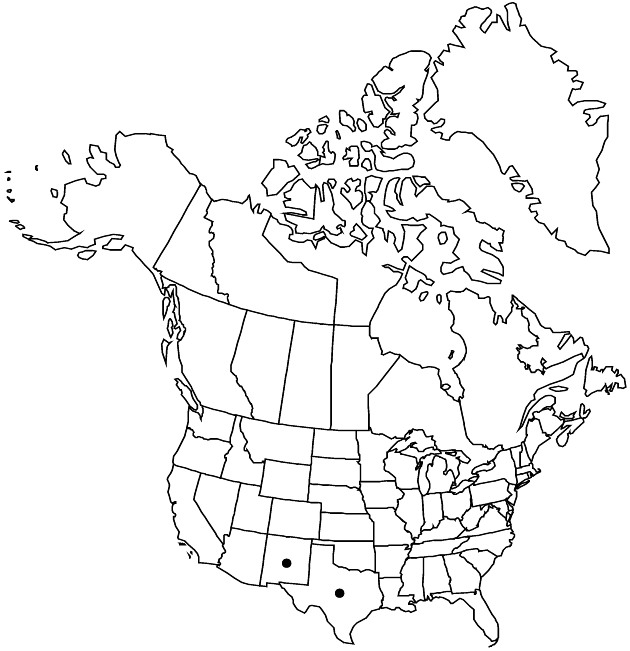Erigeron bigelovii
in W. H. Emory, Rep. U.S. Mex. Bound. 2(1): 78. 1859.
Perennials (often short-lived), 10–30 cm; taprooted, caudices woody, simple (stems and leaves arising from near roots). Stems erect (brittle, often subintricately branched), hispidulous (hairs sometimes downcurved or deflexed), eglandular. Leaves mostly cauline (basal abruptly withering); proximal cauline blades usually linear-oblong, rarely oblanceolate to obovate, 4–10 (–20) × 2–6 mm, reduced distally, margins entire, faces hispid, minutely glandular. Heads 1 (–3) per main branch, (–20–30 in later season on wiry, brittle branches). Involucres 4–5 × 6–8 mm. Phyllaries in (2–) 3–4 series, glabrous or outer sparsely hispid, minutely glandular. Ray-florets 20–40 (–50); corollas white to pink or purplish, without abaxial midstripe, 5–9 mm, laminae not coiling or reflexing. Disc corollas 3.5–4 mm (throats slightly white-indurate and inflated). Cypselae 1.5–1.9 mm, 2-nerved, faces sparsely strigose; pappi: outer of scales, inner of 15–18 (–23) bristles. 2n = 36.
Phenology: Flowering Apr–Nov (with available moisture).
Habitat: Rocky slopes and ledges, with Agave, Yucca, Dasylirion, Prosopis, Larrea
Elevation: (1000–)1500–2100 m
Distribution

N.Mex., Tex., Mexico (Chihuahua), Mexico (Coahuila), Mexico (Durango), Mexico (Nuevo León), Mexico (Zacatecas)
Discussion
Selected References
None.